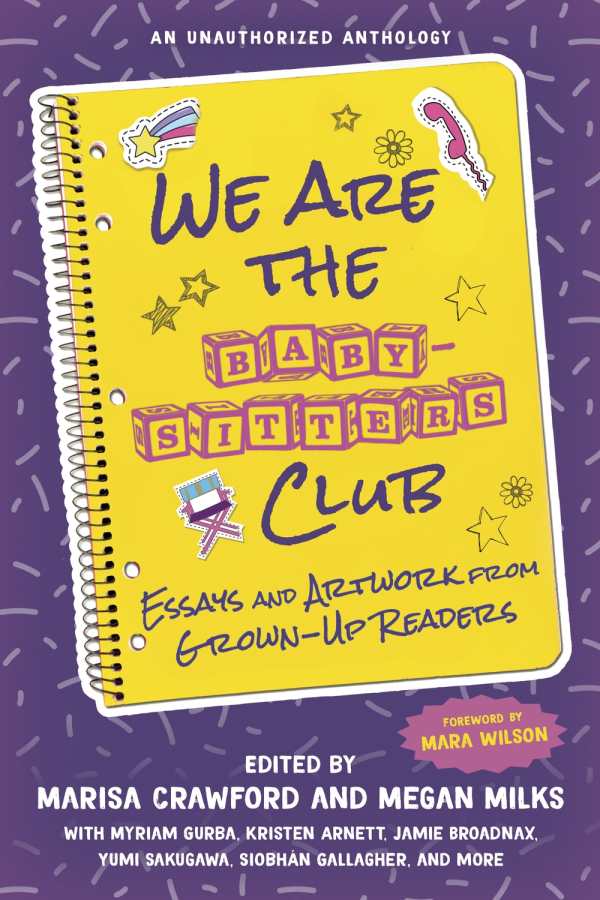We Are the Baby-Sitters Club
Essays and Artwork from Grown-Up Readers
The members of the Baby-Sitters Club are back—and wiser, older, and more inclusive—in the rich, diverse essays and comics of We Are the Baby-Sitters Club. This vibrant collection reveals the impact of the series on its readers, who are now all grown up. The entries reflect on the young entrepreneurs, circling themes of representation, race, gender, and sexuality. They also touch on Claudia’s outfits and speculate about what Ann M. Martin’s characters would be like now.
Friendships and memorable characters made the series stand out at school book fairs in the 1980s and 1990s, writes Gabrielle Moss in her history of young adult literature. Childhood BSC fans discuss their own series-centered creative projects, including a podcast, a film, blogs, and fan fiction; in the collaborative essay “The Data-Sitters Club,” a team of six from different fields consider gender and coding as they analyze the series’ word choices.
Elsewhere, contributors consider representation; the books featured people of color, those with disabilities, and different family structures beyond what was typical in their era. Many celebrate Claudia, the Club’s dimensional Japanese American member. But they reveal that readers were let down, too; several Black essayists wanted a more authentic Jessi, whose rare experiences with racism were always easy to solve by a book’s end. Contributors call out the similar flattening of the series’ autistic characters, and want to know who Martin’s ghostwriters were kidding when they had Kristi liking Bart.
We Are the Baby-Sitters Club is its editors’ own Great Idea. Like young adulthood, its entries are packed with big feelings—around longing, health issues, community, and loneliness. There are bursts of fierce, inclusive humor in this inspiring and enlightening trip back to Stoneybrook, Connecticut, where a group of young entrepreneurs still thrive in perennial tweendom.
Reviewed by
Meredith Grahl Counts
Disclosure: This article is not an endorsement, but a review. The publisher of this book provided free copies of the book to have their book reviewed by a professional reviewer. No fee was paid by the publisher for this review. Foreword Reviews only recommends books that we love. Foreword Magazine, Inc. is disclosing this in accordance with the Federal Trade Commission’s 16 CFR, Part 255.

